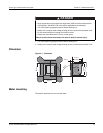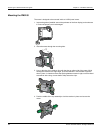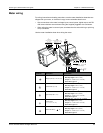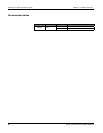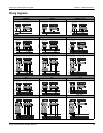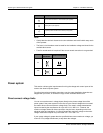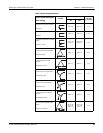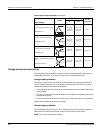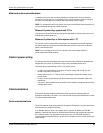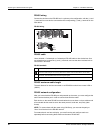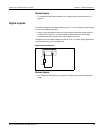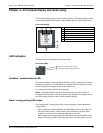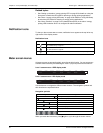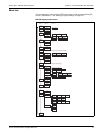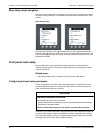
PowerLogic™ PM5100 series user guide Chapter 3—Hardware Reference
© 2014 Schneider Electric All Rights Reserved 25
Balanced system considerations
In situations where you are monitoring a balanced 3-phase load, you may choose to
connect only one or two CTs on the phase(s) you want to measure, and then configure
the meter so it calculates the current on the unconnected current input(s).
NOTE: For a balanced 4-wire Wye system, the meter’s calculations assume that there is
no current flowing through the neutral conductor.
Balanced 3-phase Wye system with 2 CTs
The current for the unconnected current input is calculated so that the vector sum for all
three phase currents equal zero.
Balanced 3-phase Wye or Delta system with 1 CT
The currents for the unconnected current inputs are calculated so that their magnitude
and phase angle are identical and equally distributed, and the vector sum for all three
phase currents equal zero.
NOTE: You must always use 3 CTs for 3-phase 4-wire center-tapped Delta or
center-tapped open Delta systems.
Control power wiring
For wiring instructions and safety precautions, see the meter installation sheet that was
shipped with your meter, or download a copy at www.schneider-electric.com.
The meter can be powered from an AC or DC power source.
• L1 and L2 are non-polarized. If using an AC power supply with neutral, connect
neutral to the meter’s L2 terminal.
• Always use a fuse on L1. Fuse L2 when connecting an ungrounded neutral to the
control power.
• If using a control power transformer, fuse both primary and secondary sides of the
transformer.
• The fuses / circuit breakers must be rated for the installation voltage and sized for the
available fault current.
Communications
This section provides additional information about the communications ports and
topologies supported by the meter. You must wire and configure the RS-485 port in order
to communicate with the meter.
Serial communications
The meter supports serial communications through the RS-485 port. Up to 32 devices can
be connected on a single RS-485 bus.
In an RS-485 network, there is one master device, typically an Ethernet to RS-485
gateway. It provides the means for RS-485 communications with multiple slave devices
(for example, meters). For applications that require only one dedicated computer to
communicate with the slave devices, an RS-232 to RS-485 converter can be used as the
master device.



